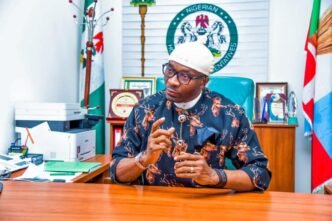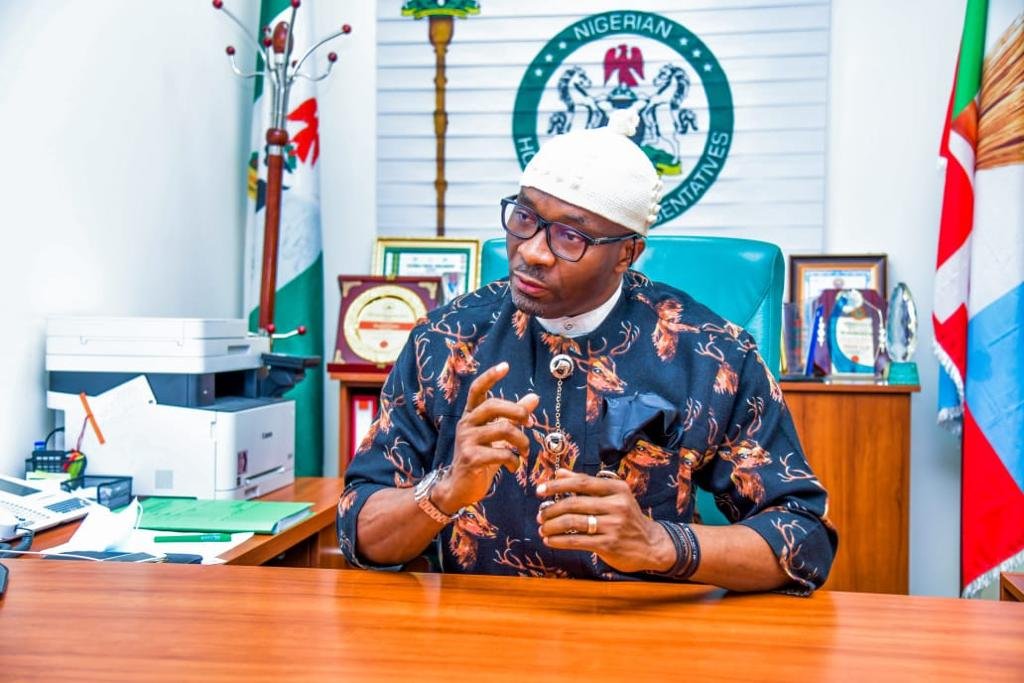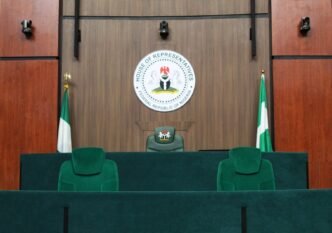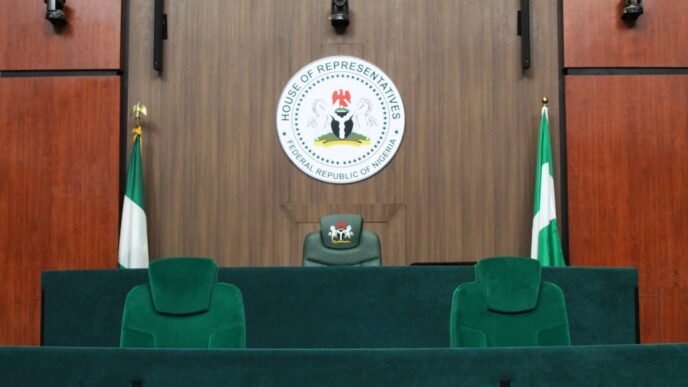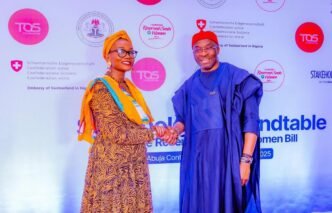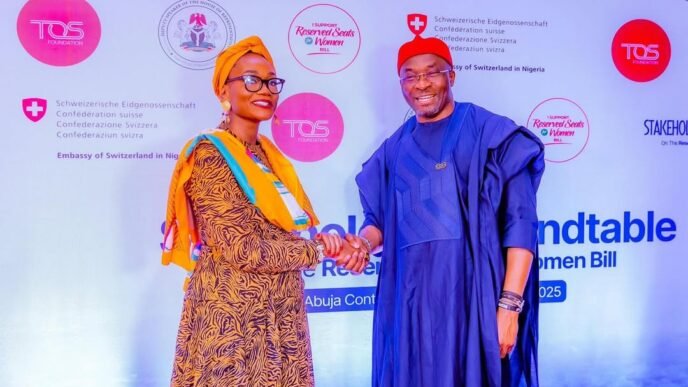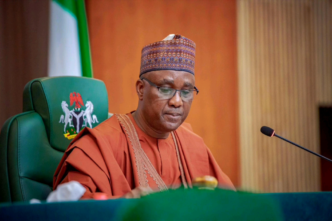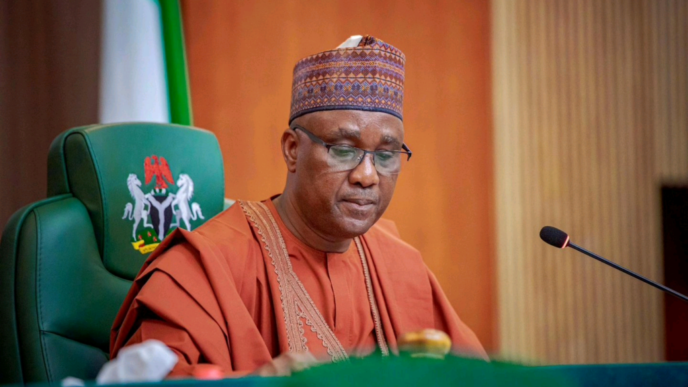HB: 2122 A BILL FOR AN ACT TO ALTER THE CONSTITUTION OF THE FEDERAL REPUBLIC OF NIGERIA, CAP. C23, LAWS OF THE FEDERATION OF NIGERIA, 2004 TO ESTABLISH THE NATIONAL LOCAL GOVERNMENT ELECTORAL COMMISSION AS AN INDEPENDENT BODY RESPONSIBLE FOR ORGANISING, CONDUCTING, AND SUPERVISING ELECTIONS INTO THE OFFICES OF CHAIRMEN AND COUNCILORS OF ALL THE LOCAL GOVERNMENTS ACROSS THE FEDERATION, INCLUDING THE AREA COUNCILS OF THE FEDERAL CAPITAL TERRITORY; TO ENSURE THE CREDIBILITY, TRANSPARENCY, AND FAIRNESS OF LOCAL GOVERNMENT ELECTIONS AND PROMOTE DEMOCRATIC GOVERNANCE AT THE GRASSROOTS LEVEL; AND FOR RELATED MATTERS Bill Sponsor: Hon. Benjamin Okezie Kalu Bill Progress: Committee Stage
This Bill seeks to alter section 153 and the 3rd schedule of the Constitution. To establish the National Local Government Electoral Commission as an independent body responsible for organizing, conducting, and supervising elections into the offices of Chairmen and Councilors of all the Local Governments across the Federation, including the Area Councils of the Federal Capital Territory. The Commission shall ensure the credibility, transparency, and fairness of local government elections and promote democratic governance at the grassroots level. 35
In recent legislative developments in Nigeria, a significant bill has emerged that seeks to amend the Constitution of the Federal Republic of Nigeria. The bill, known as HB 2122, aims to establish the National Local Government Electoral Commission (NALGEC), a move seen as crucial for the enhancement of democratic governance at the grassroots level.
The proposed NALGEC is set to be an independent body, a key feature intended to distance it from the influence of state governments. The establishment of such a commission is particularly pertinent given the perceived challenges and controversies surrounding local government elections in Nigeria. Often viewed as manipulated by state governors, local elections have faced widespread criticism regarding their integrity, credibility, and overall fairness. By transferring the responsibility for organizing and conducting local government elections from state electoral commissions to a new independent federal body, the bill aims to counteract these issues.
The main objective of NALGEC would be to oversee the electoral processes for local government offices, which include Chairmen and Councilors across the federation and in the Area Councils of the Federal Capital Territory (FCT). By centralizing this power, the legislation seeks to standardize electoral processes and ensure a level playing field for all candidates participating in local elections. This shift in power dynamics is expected to bolster the credibility of local elections, ultimately promoting democratic governance and enhanced civic participation at the grassroots level.
Local government elections are often the first point of contact for many citizens in engaging with governance, making their integrity essential for nurturing democracy. When elections are perceived to lack transparency or fairness, it can lead to disillusionment among the electorate, reducing participation and trust in democratic institutions. The bill, therefore, addresses not only the procedural aspects of local elections but also the broader implications for democratic engagement in the country.
In the context of Nigerian governance, the role of local governments is pivotal. They are responsible for implementing policies and programs that directly affect communities. However, the heavy-handed control from state governments has often diluted the effectiveness of local councils. By establishing NALGEC, the hope is to empower local governments, allowing them to function more autonomously and effectively serve their constituencies.
Moreover, one cannot overlook the potential impact this legislation could have on the political landscape in Nigeria. A reformed approach to local elections could lead to a diversification of leadership at the local level, encouraging more inclusive representation. This is particularly vital in a country as diverse as Nigeria, where different ethnicities and communities have unique needs and concerns. By ensuring that local elections are free and fair, NALGEC can serve as a conduit for more representative governance, which is a crucial element in addressing national unity and social cohesion.
The bill’s supporters argue that granting the responsibility of local elections to an independent federal body is not just a theoretical framework but a necessary reform that addresses longstanding grievances about electoral malpractices at the local level. They contend that without this change, the status quo will persist, continued frustration will bubble over, and disengagement from democratic processes will grow.
However, the establishment of NALGEC is not without its criticisms. Some stakeholders raise concerns regarding the potential for bureaucratic overreach and the efficiency of a new commission that might face its own issues in terms of operational capacity and resource allocation. Others worry about the potential political implications, fearing that an independent electoral body could be turned into a tool for political manipulation by those in power at the federal level. As with any significant reform, careful consideration and robust frameworks will be necessary to navigate these challenges effectively.
The introduction of HB 2122 comes at a crucial juncture in Nigeria’s democratic journey. Local government elections have themes of significant importance in building a resilient political culture that encourages accountability and civic engagement. If implemented successfully, the establishment of NALGEC could set a precedent for electoral reforms across various levels of governance in Nigeria.
In essence, this bill underscores a transformative move toward increasing the integrity and transparency of local government elections. If passed, it will signal a commitment to democratic principles and the empowerment of citizens at all levels of government. As stakeholders and citizens alike watch closely, the potential implications of HB 2122 could resonate through various aspects of Nigeria’s political framework for years to come, making it a focal point of discourse in the nation’s ongoing quest for credible and representative governance. The bill not only promises change in the mechanism of local elections but could also rekindle faith in the democratic process among the Nigerian populace, an outcome that is more critical now than ever.
